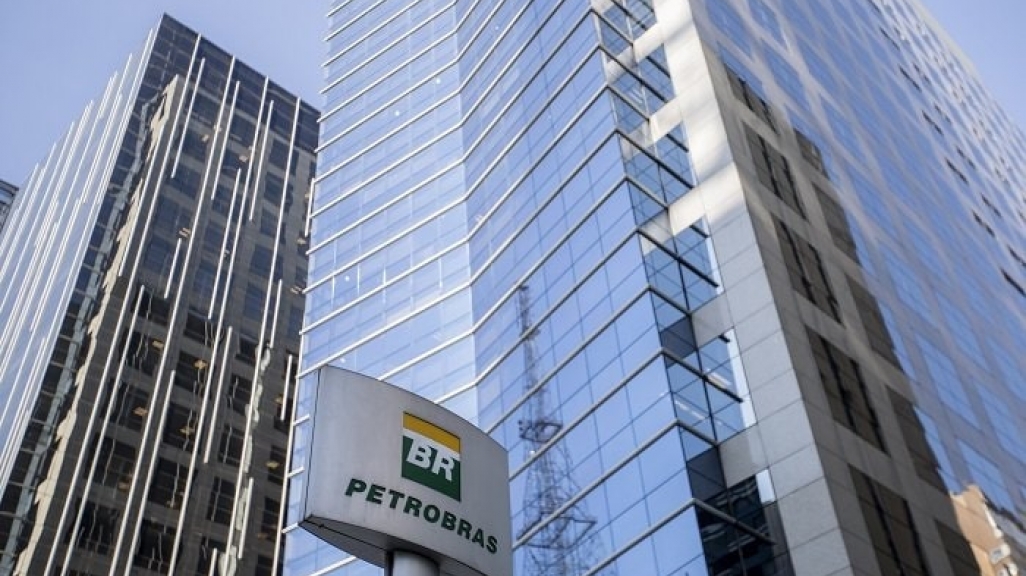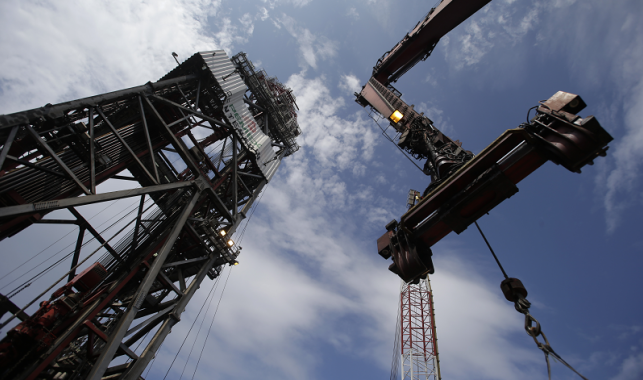Viewpoint: Brazil's Petrobras Is Getting Back in the Black
Viewpoint: Brazil's Petrobras Is Getting Back in the Black
Jair Bolsonaro is keeping the state oil firm lean and focusing on its core strength, writes AS/COA Energy Director Naki Mendoza.
Brazil’s state oil firm reported its annual earnings last week and the results impressed. For starters, the company made money. After four years of enormous losses, write-downs, and financial impairment charges related to the Lava Jato corruption scandal, Petrobras turned a profit in 2018 of $6.9 billion.
That compares to 2017 when it was $123 million in the red, as well as to 2015 when Petrobras was forced to delay the release of its audited financial statements by months as it tabulated the long list of Lava Jato-related write-downs. It eventually went on to post a $8.1 billion loss for that year, its largest ever.
Free cash flow and adjusted earnings before interest, taxes, depreciation, and amortization were both record highs. Importantly, Petrobras cut a huge load off its debt. Net debt, until recently the highest of any oil company, decreased 18 percent from 2017 to $69.4 billion, and down 30 percent from the nadir of 2015 when its debt stood at $100 billion.
The company is not without issues. Despite the cuts, its debt is still massive. Operationally, oil and gas production declined five percent year-on-year. And though the brunt of Lava Jato at least seems to be in the past, with billions of dollars in settlements paid out, the investigation is active and ongoing. Brazilian federal police, in conjunction with U.S. authorities, recently opened a new phase of the investigation that is looking into improper payments by trading houses who buy and sell Petrobras commodities.
But the results of Petrobras getting its financial house back in order are no doubt encouraging. They reflect a focus on its core business of deepwater oil and gas production. Committing to that approach opens up enticing opportunities for foreign investors to fill in where Petrobras is wanting to step back. It is a propitious start for a Brazil that is promoting more open trade and touting better investment conditions under a new president.
Pre-salt on the deepwater horizons
Petrobras’s future is inextricably tied to Brazil’s pre-salt, the massive reservoirs of deepwater oil locked beneath layers of salt under the ocean floor. The size of the resources is so vast and their operating costs so competitive, it is in Petrobras’s best interest to zero in on their development. Pre-salt oil and gas output already accounts for nearly three-quarters of Petrobras’s total production. The company’s average production costs, according to new Chief Executive Roberto Castello Branco, are as low as $10 per barrel. By rough comparison, production costs of U.S. shale projects—considered among the most attractive oil plays in the world alongside Brazil’s pre-salt—average at or above $30 per barrel.
Any assets that are not directly tied to pre-salt oil and gas exploration and production are, in theory, up for sale, company management has repeatedly suggested. Onshore and shallow-water oil blocks, pipelines, gas transmission infrastructure, and refineries, among other assets, have all been offered to the market and have generated billions of dollars in proceeds. The sales and divestments fill a dual-pronged role of allowing Petrobras to focus on its core pre-salt commitment while paying down its debt. Indeed, despite lower total oil production in 2018, Petrobras’s profitable year was aided by the reduction of interest payments on its debt, though higher oil prices and a depreciation of the Brazilian real against the dollar also played a large part.
Asset sales will take on a new life under Castello Branco, who has indicated that Petrobras will push forward with a bold divestment plan. Among the prized assets to divest is its natural gas pipeline business that operates infrastructure throughout Brazil’s heavily populated southeast. On an annual earnings call with investors, Castello Branco made clear that he wants Petrobras to significantly trim its ownership of Brazil’s national refining capacity from its current 98 percent to below 50 percent. The idea behind divesting is that pre-salt oil competitively produced by Petrobras can then be sold to private refiners at competitive prices.
Petrobras making way for private investment
These should be encouraging signs for private industry that Brazil is maintaining its openness to energy investments. For each business segment where Petrobras steps back, a new opportunity will open up for private investors. This embrace of a competitive, market-driven energy landscape can at least assuage concerns and provide some initial indications of the direction of industrial policy in the early days of Jair Bolsonaro’s administration.
The openness of Brazil’s energy sector was up for debate in the election last year. Bolsonaro had been mercurial on market openings in the past and as a member of Congress repeatedly voted in favor of maintaining Petrobras’s monopoly on oil and gas production. He also never truly focused on the economy as his core issue, running instead on a law and order platform. The apparent indifference to the economy and his delegation of all things economics to Paulo Guedes as finance czar exposed the question of which school would influence Brazil’s energy sector: the pro-market orthodoxy of Guedes or the nationalist bent of military factions who view state control of strategic assets such as energy and infrastructure as in the national interest.
At the onset of Bolsonaro’s presidency, the status quo of the previous Temer administration of open energy markets vis-à-vis Petrobras divestments is winning out. It is a policy of strengthening Petrobras by keeping it lean and focusing on its core strength—pre-salt exploration and production—and offering partnerships and foreign investment opportunities to achieve that.
Bidding on Brasília
To Latin America observers, it is the opposite approach from the one being taken by the new president of another large energy producer. Mexico’s President Andrés Manuel López Obrador is pushing a policy of strengthening state-owned Pemex by consolidating its monopoly and closing Mexico to investment opportunities for international energy companies. Pemex—which posted a $7.6 billion loss for 2018—had its credit rating recently demoted to one notch above junk status on account of its heavy tax and operational burden.
Oil and gas resources in both Mexico and Brazil are plentiful enough for both the state oil firms and foreign investors. Brazil’s government, for example, is preparing to hold a mega-auction in the latter part of 2019 for surplus volumes of pre-salt oil for which Petrobras has exclusive development rights but are more than the company can shoulder at the moment. If and when approved, it is expected to be one of the biggest public auctions ever for international investors, with pumping rights for up to 15 billion barrels of recoverable crude on the auction block, as well as the potential to generate up to $100 billion in signing bonuses for the Brazilian federal government.









